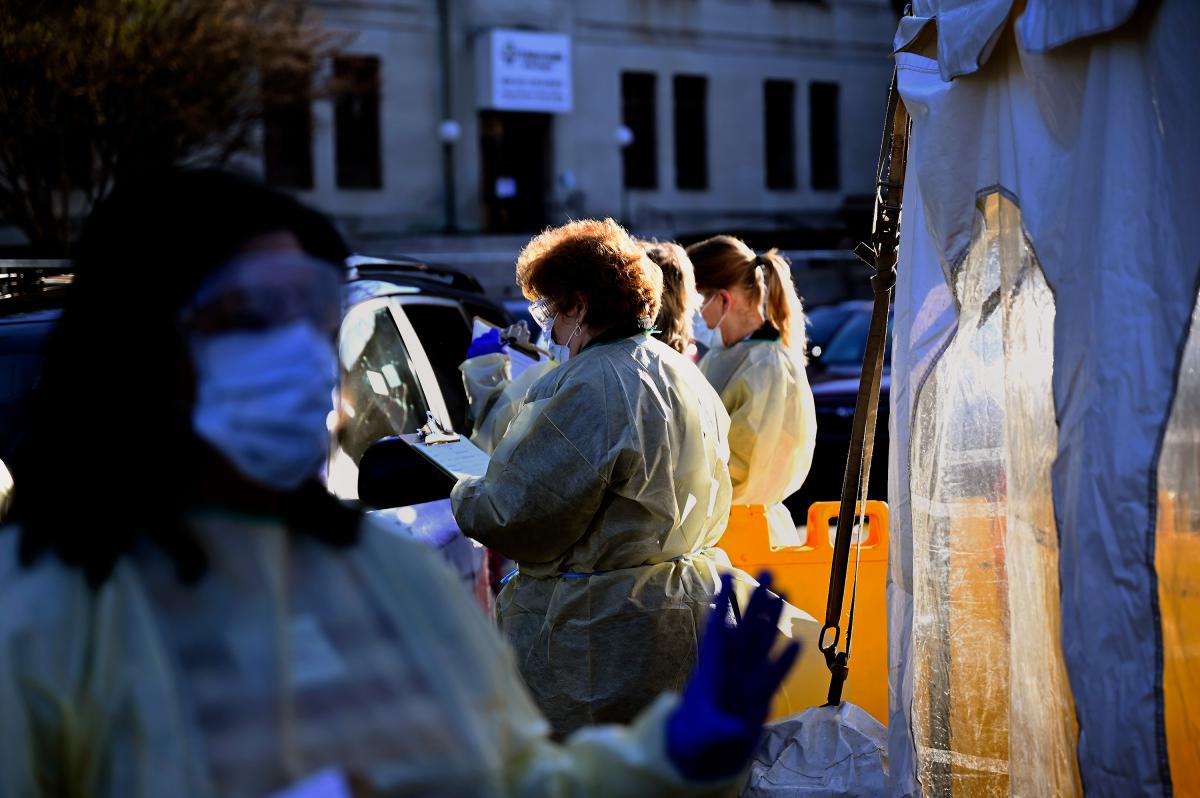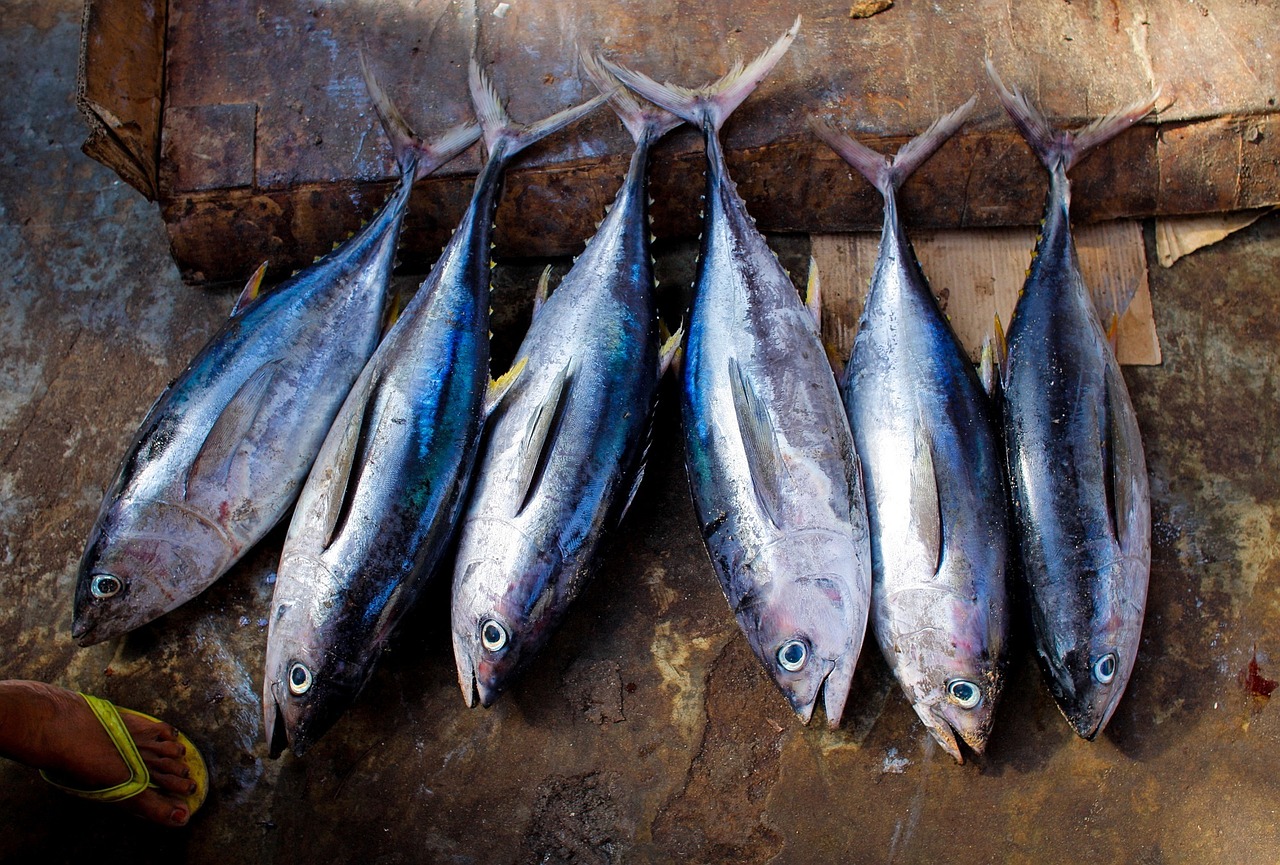Episode 195: Does New England Have Enough COVID-19 Tests?; The Fight To Save Yiddish
,
Public health experts say it will take widespread testing to reopen the economy. This week on NEXT, we look at where testing capacity lags in New England. And we hear from a Dartmouth scientist on how the Trump administration’s overhaul of mercury emissions rules could impact human and animal health. Plus, as the number of Yiddish speakers dwindle, one woman fights to save the language.
Testing Capacity In New England Is A Mixed Bag

Clinical staff members complete the registration of patients in their cars at Saint Francis Hospital and Medical Center drive-through mobile center before the COVID-19 tests are administered. (Joe Amon/Connecticut Public/NENC)
Public health experts say testing capacity will be key to when states can relax social-distancing rules and reopen the economy. And so far in New England, some states have been meeting the demand more than others. A recent study out of Harvard University asserted that Rhode Island was the only state in the country with enough testing to reopen. The COVID Tracking Project, which analyzes state by state data, has Massachusetts ranked fourth in the country for per capita testing behind New York, Louisiana and Rhode Island. This week, Connecticut announced it will begin partnering with Quest Diagnostics to ramp up testing by 80 percent.
In Maine, a lack of testing capacity has been a problem ever since the state recorded its first case, according to Maine Public Radio’s Steve Mistler. NEXT interviews Mistler to learn more.
As of April 23, New England states have reported more than 4,000 deaths linked to COVID-19, the vast majority in Massachusetts and Connecticut.
Could Existing Drugs Treat COVID-19?
Experts say creating a new drug to treat the novel coronavirus could take years. So some labs are focusing on a shortcut — by re-purposing existing drugs. President Trump put this idea in the spotlight by suggesting hydroxychloroquine, a malaria drug, as a possible, controversial treatment for COVID-19.
As WGBH’s Liz Neisloss reports, researchers at Boston University’s National Emerging Infectious Disease Laboratories are screening thousands of drugs to see if they can find “the needle in the haystack” that can fight the coronavirus.
“The most sensible thing to do when you’re dealing with a pandemic like this is to try and take what you already have on the shelf and see if it works,” microbiologist Robert Davey told WGBH.
As Trump Overhauls Mercury Regulations, Toxic Emissions Could Rise

Harmful mercury pollution travels through our watersheds, up the food chain and concentrates in predatory fish like tuna. The toxic chemical is then passed on to humans when they eat fish. (Needpix)
The Trump administration has been rolling back environmental regulations and clean air initiatives put in place under President Obama. The most recent target? A rule limiting mercury pollution and other toxic chemicals from power plants. Exposure to mercury is known to cause brain damage in young children. Since the rule went into effect in 2012, mercury pollution has declined sharply.
The Environmental Protection Agency isn’t getting rid of the mercury pollution rule, but it is going to stop taking into account some negative health effects — and that has worried some experts.
“For the weight of evidence of the science, it does not make any sense to change this rule,” said Celia Chen, a scientist and director of the Dartmouth Toxic Metals Superfund Research Program.
Chen spoke with NEXT about what the rule change could mean for people and animals if mercury emissions rise again. Her research has identified mercury concentrations in pristine lakes in Maine and New Hampshire, impacting fish and water birds like loons and eagles.
Saving Yiddish on Cape Cod

Ellie Glener reads a Yiddish phrase book. (Theo Greenly)
The United Nations has declared Yiddish an “endangered language.” Yiddish was once spoken by over 11 million Jewish people, but it’s declining quickly — by about fifteen percent every decade. In Massachusetts, only about a thousand speakers are left. But as independent producer Theo Greenly reports, one woman on Cape Cod has dedicated her life to saving it.
Theo Greenly produced this story for Atlantic Public Media through their media training program, The Transom Story Workshop in Woods Hole, Mass.
NEXT Wants to Hear From You:
As the days get warmer and the coronavirus pandemic continues, we’re beginning to wonder (and worry) about the summer. What will it look like? We want to hear from you: How are you handling this uncertainty? By plowing ahead with plans for camping trips, beach days or heading to your best friend’s wedding? Or by canceling reservations? Leave a voicemail on our comment line: 860-275-7595. Or shoot us an email at next@ctpublic.org.
Also On This Week’s Show:
- Coronavirus Forced A Chaotic Transition To Telemedicine; New Hampshire Doctors Hope It Sticks
- Outside/In: A Beginner’s Guide to Backyard Birding
- Faith Leaders Bring People Together When They’re Far Apart
- Connecticut’s Chorus Angelicus Joins Voices In The Virtual World To Send Message Of Compassion
About NEXT
NEXT is produced at Connecticut Public Radio
Host/Producer: Morgan Springer
Executive Editor: Vanessa de la Torre
Senior Director: Catie Talarski
Contributors to this episode: Liz Neisloss, Steve Mistler, Annie Ropeik, Taylor Quimby, Nancy Cohen, Ray Hardman and Theo Greenly.
Guests: Celia Chen
Music: Todd Merrell, “New England” by Goodnight Blue Moon, “Golden Hands” by Anjimile, “Chalkboard Balladeer” by Chris Ross and the North and “Rialto” by Mile Twelve.
New to NEXT? You can find every episode or one you missed within our archives.
We want your feedback! Send critiques, suggestions, questions and ideas to next@ctpublic.org. Help us spread the word! If you like what you hear, rate and review us on iTunes.
